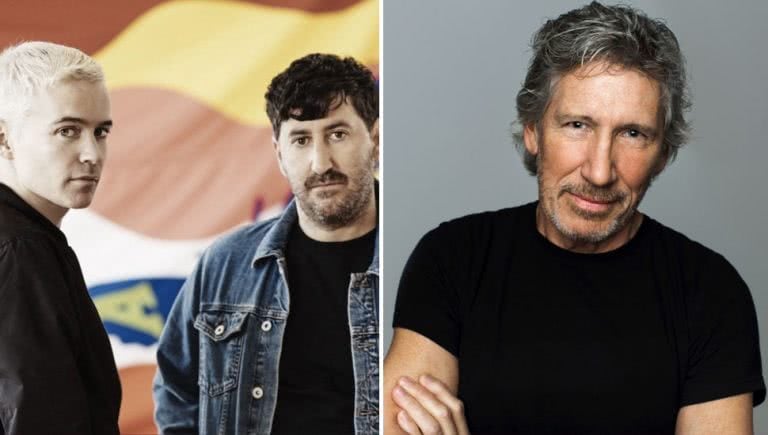“Closing walls and ticking clocks”, Coldplay drew up their take on creative delays, in their hit ‘Clocks’. But music consumers tend to have little sympathy for roadblocks on the road to creative nirvana.
Remember the grizzling that went on when Tool took 13 years to release Fear Inoculum, their fifth album, in late August?
Thankfully, Tool flipped the bird on the whingers and came up with music that was more than worth the wait, AND went on to take squatter’s rights at #1 in a number of countries including Australia.
Tame Impala pre-empted the moaning by calling their next opus The Slow Rush. It will be five years between Currents and when the new one drops in February.
It’ll be five years between Coldplay’s last and the escape of part one of the double Everyday Life on November 22nd.
But five years is chickenfeed when you’re impatiently tapping your watch while on the waiting list.
The longest wait between albums by an artist is officially 49 years. US psychedelic folk singer Linda Perhacs released her debut Parallelograms in 1970.
Love Music?
Get your daily dose of metal, rock, indie, pop, and everything else in between.
That year in Australia, there was outrage over Victorian Police wrongdoing, greenies were red-faced about the Great Barrier Reef, members of the British royal family visited to great grovelling by the locals and a film called The Set was released.
Parallelograms stiffed and Linda Perhacs went back to being a dental hygienist.
But through the years it was discovered by generations of folkies, and she released her second album The Soul Of All Natural Things in March 2019.
In 2019 in Australia, there was outrage over Victorian Police wrong-doing, greenies were red-faced about the Great Barrier Reef, members of the British royal family visited the year before to great grovelling by the locals and the ABC released a music series called The Set.
Here are 12 major acts which took almost as long between drinks
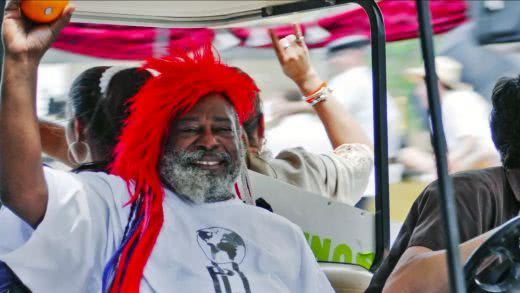
Parliament (37 Years)
170 people have drifted through the ranks of black psychedelia ensemble Parliament and offshoot Funkadelic, all with their own cartoon-type character personas.
That doesn’t include the teenager who sleepily wandered into the studio and offered to play a guitar solo for $25.
He screeched one out, took his money and left, never to be heard of again… except for his handiwork on Funkadelic’s album Let’s Take It to the Stage from 1975.
At their best, Parliament-Funkadelic created an extirpating universe of black cartoon heroes and villains and manifestos as “free your mind…and your ass will follow” and “one nation under a groove”.
After Trombipulation in December 1980, they entered a spell in the wilderness, not entirely unrelated to Clinton’s long term crack habit.
In the interim, their tracks were heavily sampled, and created love children as Fishbone and Red Hot Chilli Peppers.
In 2018 Clinton took his own advice from the mid-’70s (“get off your ass and jam”) and Medicaid Fraud Dogg came bawling out into the world 37 years, 5 months and 17 days after the last album.
Most of the 23 tracks were written by Clinton with his son, Tracey Lewis. Some of them were even as good as those in their ‘70s heyday.
Daddy Cool (35 Years)
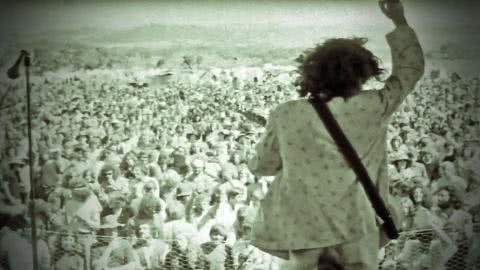
Daddy Cool exploded out of Melbourne with Daddy Who? Daddy Cool (1971) and Sex, Dope, Rock’n’Roll: Teenage Heaven (1972) before imploding from a success not seen since The Easybeats.
In 1993, Daddy Cool and Skyhooks recorded a joint album for an arena tour they were doing together.
The tour was a non-starter, but with the band to be inducted into the ARIA Hall of Fame in 2006 and festival appearances to follow, they figured “it might be a good idea to complete that pesky lost album and get it out there as much for ourselves as for the public who stuck by us for so long,” leader Ross Wilson said.
Seven tracks came from the lost album with a few more new tracks. The New Cool failed to chart when it came out in 2007.
The Stooges (34 Years)
On the opening track ‘Trollin’, Iggy Pop firmly set the rules: “You can’t tell me this is not a suave thing to do!”
After The Stooges lived up to the title Raw Power, released in 1973, their return with The Weirdness was no cash-grab.
The originals – Pop, guitarist Ron Asheton and drummer Scott Asheton – teamed with ex-Minutemen Mike Watt on bass and saxplayer Steve Mackay, and went out on tour for four years mostly through the collages.
They scraped the grime on their collars, and claimed their stake with each show.
The Weirdness (working title: Secret Project) was described by one reviewer as “more flamethrower than guitar riffs” with Iggy lyrically lashing out at everything from scheming women to yuppies (‘Greedy Awful People’) and the French race.
It sold 30,000 copies in the US. It was The Stooges’ last recording with Ron, he died two years later a heart attack in bed. Sonic Youth’s album The Eternal is dedicated to him.

The Pop Group (34 Years)
Emerging from Bristol, England, all teen angst and political revolution, The Pop Group were one of the major post-punk acts, donating tour proceeds to Amnesty, had singles titled ‘We Are All Prostitutes’ and playing to 500,000 at an anti-nuclear rally at Trafalgar Square.
Internal dissension and legal issues saw them split after March 1980s For How Much Longer Do We Tolerate Mass Murder?.
During their split, Nick Cave, Nine Inch Nails, and Massive Attack joyously acclaimed their music.
The Pop Group were already talking about putting their differences aside and playing again when Simpsons co-creator Matt Groening was asked to curate a UK music festival and asked two acts to reform – The Pop Group and The Stooges.
Citizen Zombie came out in February 2016, the title about how authorities feed people with celebrity trivia and mindless TV to keep them from thinking.
Says leader Mark Stewart, “As far as I’m concerned, we’re totally different people and this is a brand new band.”

Mi-Sex (33 Years)
Mi-Sex drove their tour bus to Auckland airport and left it behind in the car park while they flew to Sydney with just $4,000 between them. It was August 1978 and they had no idea what to do when they arrived.
But new wave had hit, and with a Euro-synth sound and a space age image, within six months they were the fourth biggest live act un Sydney.
‘Computer Games’ and ‘People’ on CBS (now Sony) had the right po-faced “I am the future” vibe and became hits.
But the tide went out, and even though they made increasingly better albums, Joe and Josephine Public had moved on.
The 1983 release of Where Do They Go? was followed by a hiatus between 1986 and 2010, during singer Steve Gilpin died on January 6, 1992,as a result of a car accident.
A one-off reunion for a 2011 Christchurch earthquake, with former Noiseworks bass player Steve Balbi stepping in for Gilpin, ignited enough sparks for them to enter in the studios.
Guitarist Kevin Stanton was forced to play a limited role as he was recovering from surgery on his spine which affected movement in his left arm.
Not From Here, out in September 2016 on Golden Robot had strong moments but peaked at #93 on the ARIA chart.

Billy Thorpe (28 Years)
In the year 2000, Billy Thorpe, his daughters and some friends journeyed to Morocco to celebrate his wife Lynn’s 50th birthday. Within 30 minutes he’d written the title track for the album.
As the Making Of Tangier doc showed, the concept developed over thee weeks of travelling around the country, an experience Thorpe would describe as the “most amazing time I’ve had in all of my life.”
It would feature an orchestra and local singers and players that he jammed with at markets and social events.
Making of Tangier

A planned album with his touring band was dumped, and he put all his efforts into Tangier during late 2006, to follow up his last solo album of new material East Of Eden’s Gate in 1982.
Thorpe died of a heart attack in in Sydney in February 2007, and the record was finished by Daniel Denholm and a team of Thorpe friends.
Tangier was the first album to win an ARIA posthumously after its 2010 release.

Chic (26 Years)
Chic were formed by Nile Rodgers and Bernard Edwards, who meet in 1970 on he New York sessions circuit.
By the mid-’70s they had converted the disco field to an art form with ‘Le Freak’ and ‘Good Times’ before they were in hot demand by the likes of Sister Sledge and David Bowie, and for Rogers after Edwards’ death from cancer, INXS, Duran Duran, INXS and Robert Palmer.
Chici-ism (September 1978) was their last album. But after a birthday party jam, the original band was reconvened.
In February 2015, Rogers who had been touring with Chic, signed a deal with Warner Bros, announcing plans to collaborate with David Guetta and Avicii on “a pop record”. It’s About Time emerged in September 2018.
Ross Ryan (26 Years)
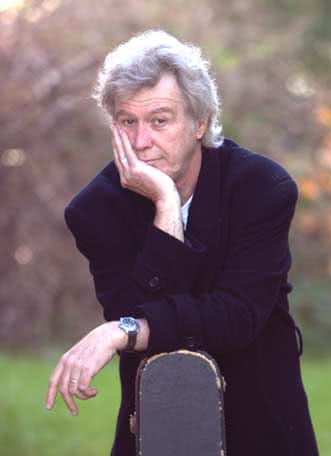
By the time Australian singer songwriter Ross Ryan (‘I Am Pegasus’, ‘Blue Chevrolet Ballerina’) finished his fourth album Smiling For The Camera in August 1976, he already had the follow up One Person Queue in his head.
So why “the difficult fifth album” took until 2003 to see light of day is explained in a humorous account on his website.
Ryan attributed delays to accidentally leaving the master tapes containing the first batch of 14 songs on a train, another album dumped, a stay in Mexico and a lengthier stay in hospital.
It’s not known if any of this is true.
The Eagles (24 Years)

The good ship Eagles was already sprouting leaks on all sides when it steamed into port to make the After The Long Run in 1977.
Relationships were strained, the plan to make a double album was dropped when they couldn’t cough up with enough songs (eye-raising given they were a band of songwriters) and the whole thing took two years to squeeze out, hitting the stores on September 24, 1979.
Glenn Frey left and refused to speak to the others, and a contractual live album was put together via Federal Express deliveries, including the multi-harmonies.
It was put out in 1980 with no less than five attorneys listed on the album credits.
It took 14 years before they could stand to be on the same stage together. This was for the three year Hell Freezes Over, one of the biggest grossing tours of all time, and a resultant live album sold 6 million in the US.
On October 30, 2007, The Eagles released Long Road Out of Eden, their first album of all-new material since 1979.
It debuted at #1 in six countries including Australia, and sold 7 million in the US, and another lengthy world tour followed.
Roger Waters (24 Years)

Roger Waters’ fourth solo album Is This the Life We Really Want? came out on June 2, 2017, his first solo album since Amused To Death (1992).
In between he’d been involved in operas and the ambitious The Wall Live In Berlin.
But the original plan for Is This the Life We Really Want? also needed some hedge clipping.
Waters explained to Guitar World that he originally wrote it as a play for radio.
It was about an Irish grandfather being questioned by his grandson why children were being killed in the Middle East and Africa, and they plan to go on a quest to find out.
Producer Nigel Godrich who mixed The Wall documentary was interested but told Waters the concept was not a record.
“In the end, we completely jettisoned the original plot and edited the music down to something more manageable.”
Guns N’ Roses (17 Years)
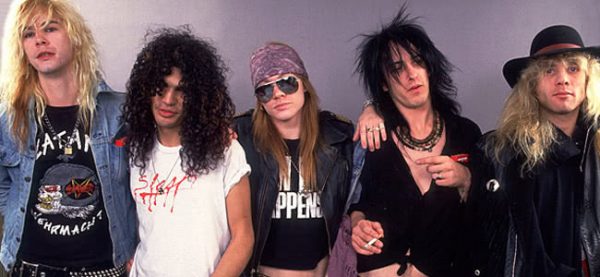
Whatever was left of Guns N’ Roses began working on Chinese Democracy— their first album of original material since 1991’s twin Use Your Illusion releases – in 1997.
Geffen Records had offered Axl Rose a $1 million bonus if he delivered it to them in 1999. There were a few minor problems. Well, more major than minor, actually.
As Rolling Stone pointed out, these included Axl sacking members, getting new ones (including guitarist Buckethead who would only record standing inside a chicken coop), finding a producer brave enough to work with him and Axl wasting time wanting to re-record Use Your Illusion with his new boos.
In all this was Axl’s penchant for consulting with a psychic who would advise him of the suitability of his new players, label execs and even roadies by looking at the auras in their photos.
Geffen withdrawing its funding as costs rose into the millions wouldn’t have help, surely.
By November 2008 when it was finished, with most of Axl’s vocals done eight years before, it was such an anti-climax that although it tore up the charts (#1 in Australia) people considered it a bit, gasp, dated.
The Avalanches (15 Years)

As the NME succinctly put it on the Melbourne act The Avalanches’ follow-up to 2001’s Since I Left You with Wildflower in 2016: “Not so much an avalanche as a very light dusting of snow between albums.”
Reasons according to the band: lineup changes and a shift in sound from “ambient world music” tit her glorious frontiers.






























